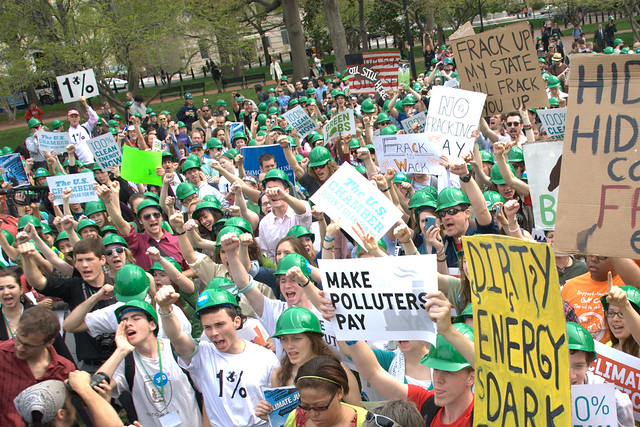It's almost impossible to envision a major modern city without cars (okay I'll come clean, there are a few of the first automobiles in this clip). One of the coolest things about this video though, is that without cars everyone uses the street. There are more pedestrians in the street than on the sidewalk. Bicycles weave back and forth across the streetcar-mounted camera. There are few carriages and even fewer automobiles. The video commentary from Pattern Cities echoes the importance of this idea:
Unfortunately I don't think we will ever return to the ideal displayed here. We've traveled too far along our current path. Effectively merging cars and cities is not an easy task, but it is something that is an important problem in the 21st Century. Throughout the discussion around the impacts of automobile use on the planet I am amused by those who wish to do away with them entirely. Aside from being unfeasible - we've developed a modern transportation network predicated on automobility - it's also unfavorable. There's a reason cars are so popular. Car owners love the autonomy inherent in being able to go where you want to, when you want to. I'm not foolish enough to suppose that nothing will ever replace the automobile (where is my jetpack, anyhow?) but I am certain they are here to stay for the foreseeable future. And yes, maybe even through the 100 year timeline often cited as the window of opportunity to improve the odds on climate change. Since altering the infrastructure that mandates automobile use will take longer than we realistically have time for, the answer could depend on the speed at which we improve efficiency of hybrid vehicles and develop better electric vehicle technology. That said, we could sure do ourselves a favor and make fewer decisions like this one.This incredible film... demonstrates the degree to which modern society has engineered complexity out of our streets. It also provides a glimpse into how our city streets operated before the automobile went mainstream, a seminal 20th century moment that has damaged cities the world over.
But surely the streets of the 1900s were not entirely crash-free, or as romantic as this film and its whimsical music make them out to be. Yet, the inherent complexity– the organized chaos of streetcars, pedestrians, horse-drawn carriages, and yes, motorists all mixing together–is instructive and should make any urbanist long for a time when the tyranny of the automobile didn’t dominate the project of city building.

